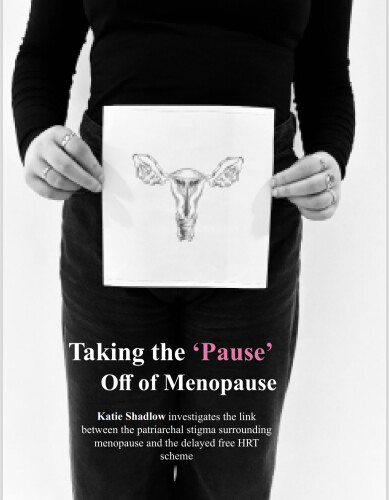Taking the ‘Pause’ off of Menopause
The 2025 Irish budget marked a historic turning point in women’s healthcare with the announcement of a state-funded free hormone replacement therapy (HRT) scheme. HRT is used to treat symptoms of menopause, a stage in women’s lives often overlooked in mainstream healthcare policy. This initiative followed the successful rollout of the free contraception scheme in 2022 and was seen as a necessary next step, especially after the Irish Human Rights and Equality Commission (IHREC) publicly criticized the Irish healthcare system in 2023 for being shaped by "patriarchal institutional legacies" that compromised women’s right to health.
The scheme's rollout, due to take place in January 2025, has not come into effect. This delay has sparked public frustration, particularly among women depending on HRT. Social Democrats TD Sinéad Gibney called the delay a "slap in the face" to women. It is argued by medical professionals that menopause is still often dismissed as a private issue rather than a valid medical concern.
As a result of the delay in the rollout of this scheme, healthcare professionals Stephanie Fuller, medical consultant at The Menopause Hub, and its’ founder Loretta Dignam, point out a systemic bias that prioritizes younger women's reproductive needs, linked to fertility, over the health needs of menopausal women.
Dr. Roisín Vize, a lecturer who has personally experienced menopause, highlighted disparities in healthcare access, noting that private health insurance does not cover menopause-related treatments and that HRT can cost up to €70 monthly without a medical card. She contrasted this with how easily men can access medications like Viagra — without prescriptions or shortages — a disparity she believes reflects the male-dominated nature of Irish society.
The broader issue, advocates say, is the lack of education and public discourse around menopause. Until recently, it remained a taboo subject. Both Vize and Fuller emphasize the need for systemic change — including better education, workplace accommodations, and healthcare support. Fuller urges the government to act quickly: “Free HRT needs to be made readily available, as soon as possible.”
The delay in HRT rollout serves as a stark reminder that progress in women’s healthcare must go beyond symbolic announcements. Real change requires comprehensive support, transparency, and a commitment to dismantling the lingering patriarchal biases within the healthcare system.
